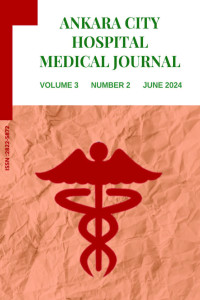Abstract
INTRODUCTION: This retrospective study evaluated women in whom transvaginal cervical cerclage (TCC) was performed in a previous pregnancy but delivered without cervical intervention in the most recent pregnancy. The primary aim was to underline the importance of etiology based management protocols on favorable pregnancy outcomes in patients with a history of TCC.
METHODS: We retrospectively evaluated 34 patients with at least one failed TCC for the treatment of cervical insufficiency (CI) but who gave birth without TCC in their most recent pregnancies.
RESULTS: All patients were evaluated preconceptionally and examined for maternal risk factors. At least one risk factor was present in all cases. The autoimmune antibody positivity rate was 41.2%. Twelve patients had Hashimoto thyroiditis, two had systemic lupus erythematosus, two had pernicious anemia, and two had anti-phospholipid antibody syndrome. 32 had homozygous or heterozygous methylenetetrahydrofolate reductase (MTHFR) gene polymorphisms, while 11 were homozygous or heterozygous for factor 5 Leiden or prothrombin-20210A gene mutations.
CONCLUSION: The elimination and management of risk factors for cervical ripening and dilatation are important for preventing unnecessary cervical interventions.
Details
| Primary Language | English |
|---|---|
| Subjects | Traditional, Complementary and Integrative Medicine (Other) |
| Journal Section | Research Articles |
| Authors | |
| Publication Date | June 28, 2024 |
| Submission Date | May 30, 2024 |
| Acceptance Date | June 23, 2024 |
| Published in Issue | Year 2024 Volume: 3 Issue: 2 |

